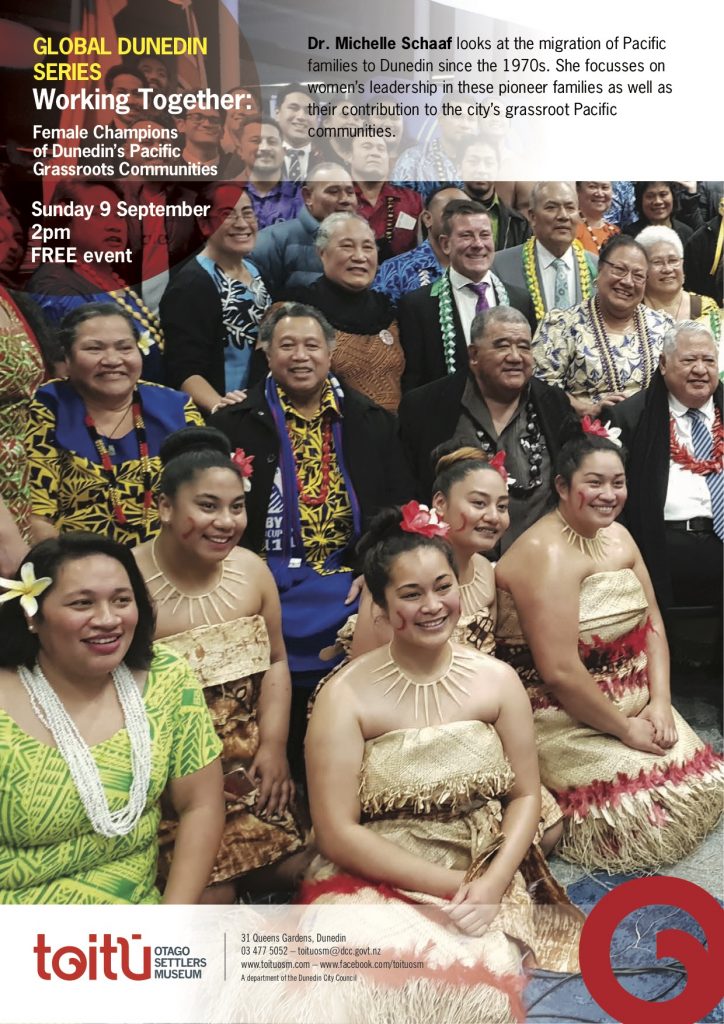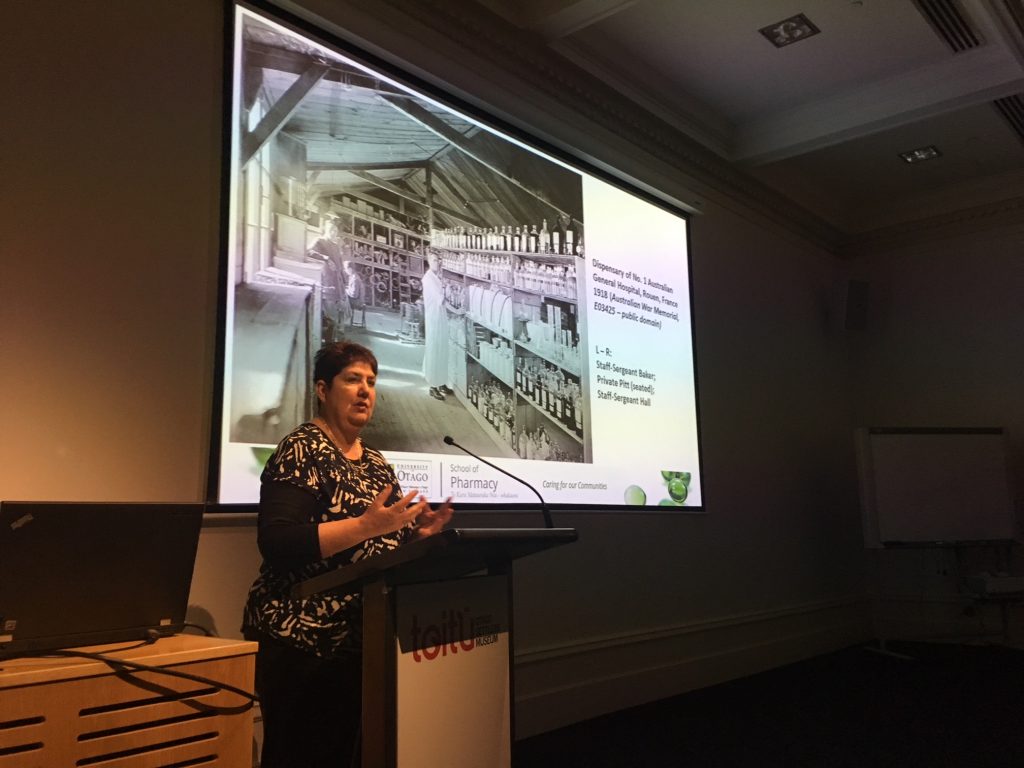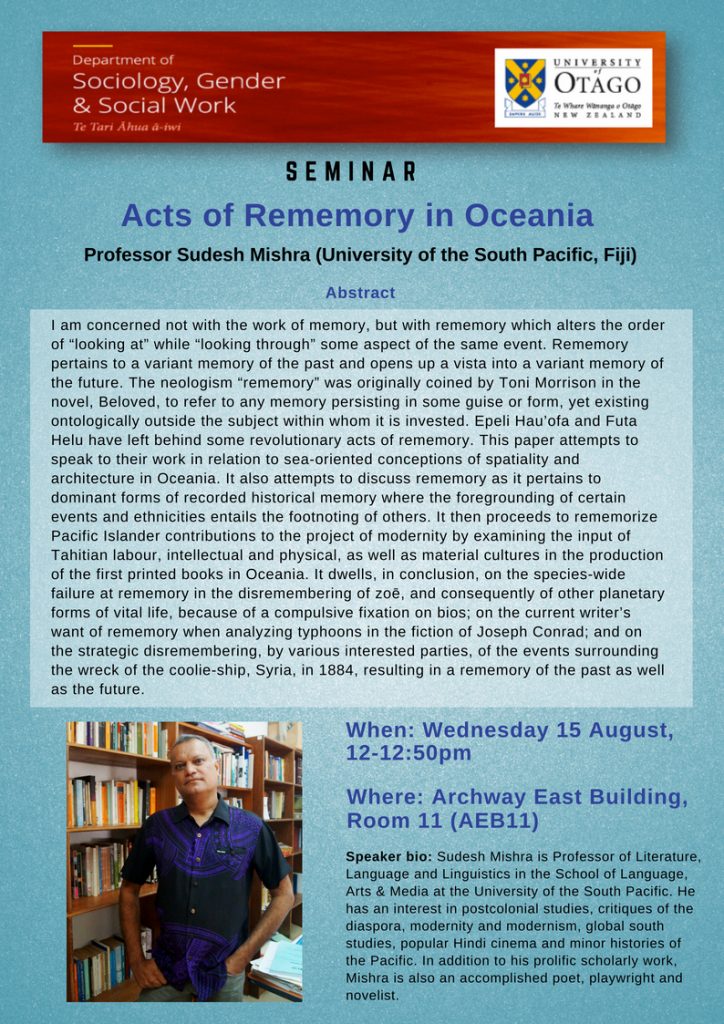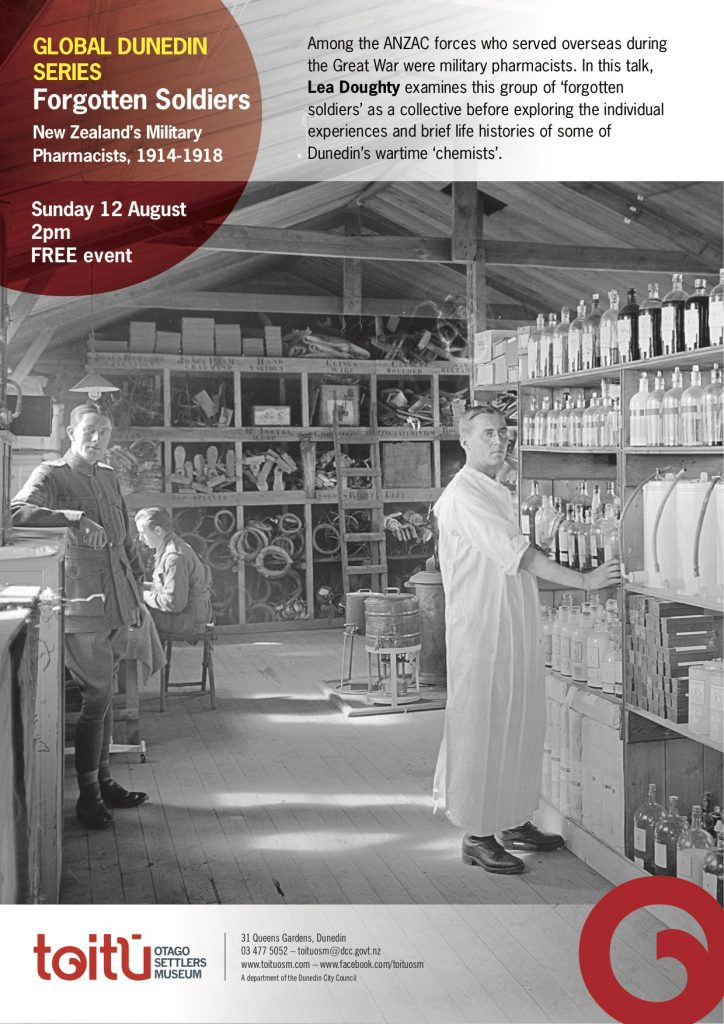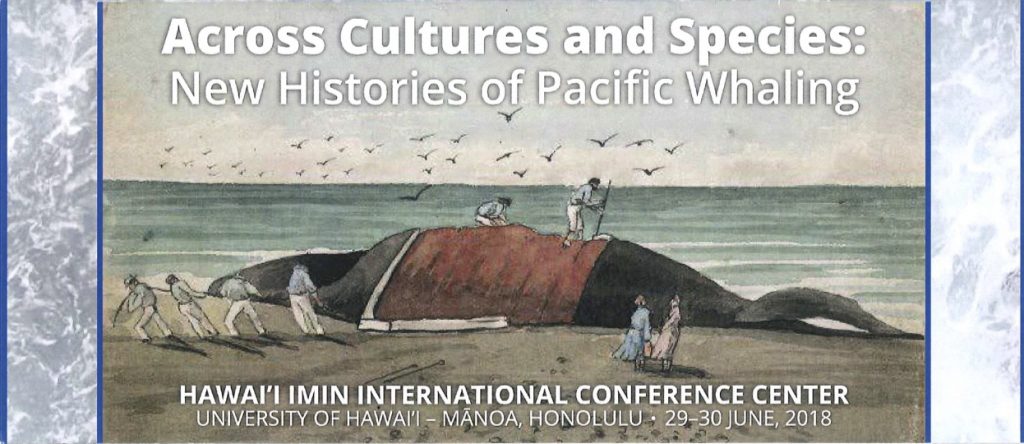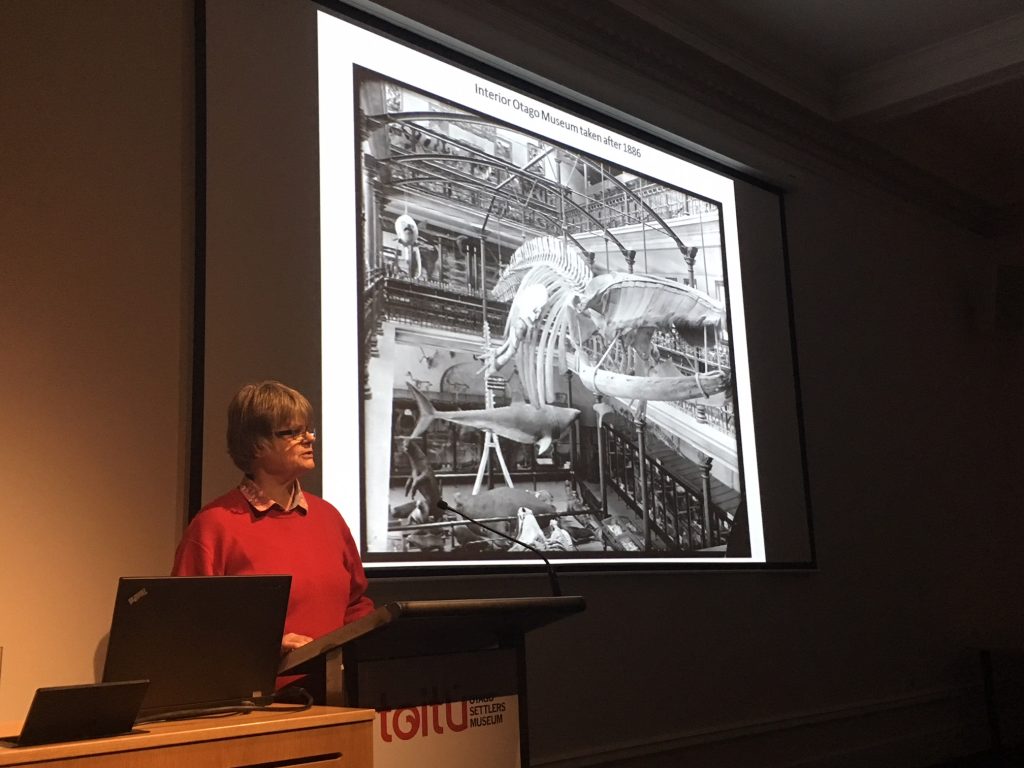Global Dunedin Lecture on Pacific Women’s Leadership
Our next Global Dunedin lecture will be presented by Dr. Michelle Schaaf (Te Tumu: School of Māori, Pacific and Indigenous Studies) on Sunday 9 September. She will discuss the migration of Pacific families to Dunedin, focusing in particular on the role of female leadership within these pioneer families, especially their contribution to the city’s Pacific communities. Join us at 2pm on Sunday at Toitū’s Auditorium for this free event.
Public Lecture: Thinking the Empire Whole
Thinking the Empire Whole
Professor Steven Pincus
Thomas E. Donnelly Professor of British History, University of Chicago
The history of the British Empire to 1784 has been hopelessly fractured. Each bit of the Empire is discussed separately, the binary relationship between proto-nations and the imperial metropole. This was not how folks in the seventeenth and eighteenth century experienced their world. They thought and wrote about their empire as a whole. This empire was shaped by institutions and riven by debates about how best to run an empire. While some innovative scholars have recently deployed the paradigm of “settler colonialism” to attempt to reconnect and compare similar phenomena, this paradigm is insufficient because it marginalizes the imperial state, narrows the range of political economic debate, and homogenizes both the settler and indigenous experience. By thinking the empire whole it is possible to reinterpret seminal moments like the imperial crisis of the 1760s–1780s.
Location: Archway 3, 5:30pm, Wednesday 15 August, 2018
Curiosity in Things Conference
Call for Papers
HELD IN TRUST: CURIOSITY IN THINGS
A conference co-sponsored by Otago Museum and the Centre for Research on Colonial Culture, University of Otago
24-25 January 2019
Barclay Theatre, Otago Museum
The history of museums has largely been framed under the rubric of colonial domination or building cathedrals of science. But what are the bigger stories that motivated the creation of the collections?
Objects have the capacity to tell stories of lives and communities that are interconnected over space and time. Objects are the tangible material world of scientific endeavour and during the nineteenth century trade in them boomed, yet accounts of the political context surrounding their discovery and translocation are overlooked.
Looking beyond object biographies, tales of eccentric collectors, acquisition and institutional histories, this conference foregrounds the global context of commercial trade and exchange networks that contributed to the patterns of knowledge discovery and creation. What then are the bigger stories of culture, economics and politics that formed our colonial museums?
We invite contributions that address the broad theme of knowledge production in the colonial museum.
Keynote speakers:
- Professor Tony Ballantyne FRSNZ Co-director Centre for Research on Colonial Culture and Pro-Vice Chancellor Humanities, University of Otago.
- Professor Simon Ville, Senior Professor of Economic and Business History, School of Humanities and Social Inquiry in the Faculty of Law, Humanities and Arts, University of Woollongong.
- Associate Professor Conal McCarthy, Director of the Museum and Heritage Studies programme at Victoria University of Wellington.
Please send your abstract (max. 250 words) and one-page CV to crocc@otago.ac.nz by September 15th, 2018.
For further information, please contact Rosi Crane (Rosi.Crane@otagomuseum.nz).
Dunedin’s Wartime Chemists
In her Global Dunedin Lecture at Toitū on 12 August, Lea Doughty (PhD Candidate, School of Pharmacy) used a life history approach to track the wartime experiences of pharmacists who served with New Zealand forces during World War I. Lea’s research is on military medicine during the Great War, focusing on pharmacy and the ANZAC forces. Her Global Dunedin lecture touched on the reasons why pharmacy and pharmacists are often a forgotten aspect of New Zealand’s histories of World War I, largely because their work takes place at a distance from the main event, or they were diverted into other military roles. In total, 192 men who had worked as pharmacists served with New Zealand forces, 18 of whom were born in Dunedin. Of the 192 men, 27 died on active service. These included William Sloan, the first pharmacist to enlist, who died of wounds he sustained at Gallipoli, and Harold Dodds of Port Chalmers who died at Passchendaele in October 1917. Looking wider than the Dunedin cohort, Lea highlighted the range of roles pharmacists were given. William Brosnahan, from the West Coast, was utilised as a vet in the Imperial Camel Corps. Interestingly, there was one Māori chemist who served with the New Zealand forces. Jack Hiroti attained the rank of Sergeant in World War I, and went on to serve with distinction in World War II with the 28th Māori Battalion. Many thanks to Lea for providing an interesting insight into a little known aspect of New Zealand’s military history, and for bringing to light the personal histories of these servicemen.
Research Seminar: Acts of Rememory in Oceania
Professor Sudesh Mishra, a scholar, poet, playwright and novelist based at the University of the South Pacific, will present in the Department of Sociology, Gender and Social Work research seminar series on Wednesday 15 August. Details of time and location are on the poster below. All welcome.
Tracing Dunedin’s wartime ‘chemists’
Our next Global Dunedin Lecture will be presented by Lea Doughty (PhD candidate, School of Pharmacy, University of Otago) on Sunday 12 August at Toitū (for details see poster). In this talk Lea will discuss the pharmacists who served in New Zealand forces during World War 1, trace some of their experiences during and after the war, and place this history into the context of the global history of military medicine. This is a free talk and all are welcome!
CFP: Exclusion, Confinement, Dispossession
Curiosity in Things Conference
Just a reminder about this forthcoming conference. Submissions close 15 September.
https://blogs.otago.ac.nz/crocc/2018/05/30/held-in-trust-curiosity-in-things-conference/
Conference Report: Across Cultures and Species
In late June, the Centre co-sponsored a two-day pre-read workshop at Honolulu on new histories of pacific whaling. Participants were invited to think about animal-human interactions, as well as the intersection between environmental and cross-cultural histories. The workshop was led by Ryan Tucker Jones (University of Oregon) with support from Centre member, Angela Wanhalla, and generously supported by the Rachel Carson Center for Environment and Society.
The workshop opened with a paper by Susan Lebo (State Historic Preservation Office, Hawaii) that made a case for newspapers as integral, but overlooked, sources for revealing Hawaii’s whaling history, particularly Hawaiian-language newspapers, which feature Indigenous narratives. Lissa Wadewitz (Linfield College) examined the paradox of the violence involved in hunting and processing whales and their sometimes professed sentimentality for the animals, which she set within a context of a growing animal welfare movement in the United States. Vicki Luker (ANU) narrated the story of whaling in Fiji through the experiences of a chief and chiefly politics, while Adam Paterson (South Australia Maritime Museum) discussed a collaborative project on whalers and cross-cultural history at Encounter Bay, South Australia, emphasising Ngarrinderjeri perspectives about whales. Kate Stevens and Angela Wanhalla (University of Otago) took us to southern New Zealand where they used kinship as a framework of analysis to explore Kāi Tahu women’s participation in the shore whaling industry and their association with the sea. We concluded the first day with Nancy Shoemaker‘s (University of Connecticut) paper on the global trade in whale products and Akamine Jun‘s (Hitotsubashi University) interrogation of coastal whaling in Japan and how this shaped particular food cultures.
Day two opened with a session on Japan. Jakobina Arch (Whitman College) discussed the role of pelagic whaling in advancing Japan’s territorial expansion in the Pacific, while Noell Wilson (University of Mississippi) considered whaling cultures in the 19th century Hokkaido maritime region, focusing on the Ainu. In the second set of papers, Bathseba Demuth (Brown University) addressed capitalism in the early north pacific through the perspective of bowhead whales, inserting whale agency into human history. Jason Colby (Victoria) turned to the capture of grey whales for Seaworld in California, how this shaped scientific research and influenced human understanding of whales during an international movement focused on conservation and protection. The workshop closed with two papers that considered whaling and whales within contemporary Indigenous contexts. Jonathan Clapperton’s (Independent historian) paper addressed Puget Sound Salish Culture and legal claims to being whaling people, while Billie Lythberg (Auckland University) and Wayne Ngata (former Chair of the Māori Language Commission) told the story of Paikea, a whale and human ancestor, embodied by a tekoteko (carved human form) held by the American Natural History Museum in New York, who they hope to return home to his people. The workshop closed with a keynote address from Joshua L. Reid (University of Washington) at the Bishop Museum that centred Indigenous experience and perspectives at the heart of new histories of Pacific whaling.
Globalising Otago Museum
The latest instalment of the Global Dunedin Lecture Series was given by Dr. Rosi Crane (Honorary Curator, Otago Museum) on Sunday July 8th. Her subject was the global trade in animal skeletons, exotic birds, and pelts that underpinned the establishment of Otago Museum’s early collections. This was a truly global trade in which the museum’s earliest curators were enthusiastic participants. In exchange for moa bones and whale skeletons, Otago Museum received exotic overseas specimens. An early example was a giraffe skeleton from a Paris museum acquired in 1874. A key currency, highly desired by international museums, moa bones were sent to Liverpool, Sydney, Aberystwyth, and many other locations. Specimens were also obtained opportunistically, but also through a network of commercial dealers located across the globe. Many thanks to Rosi for sharing her research with a large crowd who were left enthralled and astounded by the global reach of Otago Museum’s collection.

